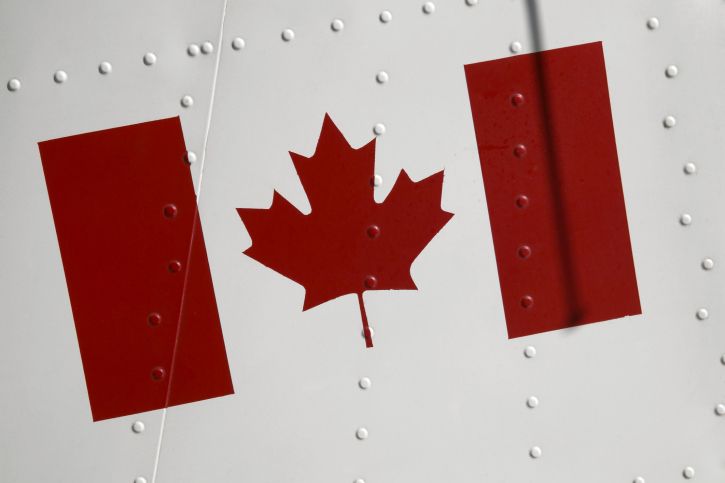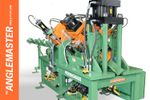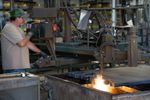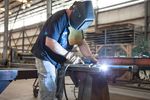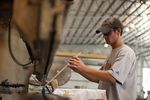As Southerners, we’re not ashamed to admit we occasionally sip on Canadian rye whiskey when we’re not at work. We find the higher content of corn mash makes it a little smoother than its American counterparts. Part of that smoothness also comes from Canada requiring all whiskeys to be aged in wooden barrels for at least three years, while American straight whiskeys only require two.
Like its whiskey standards, Canadian welding standards (CSA Standards W47.1 and W59) are technically very similar to U.S. standards (AWS D1.1) with one main difference — Canada requires third-party verification carried out by the Canadian Welding Bureau (CWB). This means that a company certified by the CWB, such as Southern Metal Fabrication (SMF), has had its welder qualifications witnessed and verified by the CWB.
“But SMF,” you say. “You guys are quintessential Southern gentlemen. Why are you concerned with Canadian welding standards?” Well, we are often asked to weld Canadian products such as boiler elements for Canadian Oil Sands projects for our Zamboni-loving friends up north; this requires us to maintain compliance with CSA Standard W47.1. Plus, many of the CWB requirements are just good welding practices.
Truth be told, Canada has fantastic standards that are quickly gaining popularity among U.S. fabricators. Many U.S. jurisdictions have accepted CWB certification as an alternative to the “special instructions” requirement specified by the International Building Code (IBC).
What are Canadian Welding Bureau Standards?
Let’s take a deeper look at CWB standards. They essentially require three things:
- Welding is done by competent, qualified individuals
- Welding operations are overseen by competent, qualified individuals
- Welding follows proven, qualified welding procedures
Qualified Welders
Welders working for a CWB-certified company must be qualified by the CWB every two years in the areas of welding skill level, visual ability, and manual dexterity. These tests typically take place at a company’s facility.
For example, we’re currently going through 1G, 2G, 3G, and 4G welding certification at our (disclaimer: shameless plug) state-of-the-art 72,000-square-foot facility equipped with 32 world-class HTC MIG and TIG welding stations. As per CSA Standard W47.1, a CWB representative is present and witnesses all qualification tests.
Qualified Supervisors
Becoming a CWB qualified welding supervisor is quite an achievement. Supervisors must take a comprehensive written test that covers the identification of welding symbols, weld faults, quality control, inspection methods, and expert knowledge of any fabrication standards applicable to their field. Each CWB supervisor candidate is assessed by the CWB to ensure they have the experience necessary to prove mastery of welding operations. All CWB-certified companies are required to employ at least one CWB welding supervisor.
Qualified Procedures
CWB has procedural standards to ensure you never compromise the quality of your welds with mistakes like cross contaminating metals. CWB provides detailed standards on welding operation, including procedures for handling base materials, equipment settings, electrodes, preheating, and heat input.
In order to adhere to CWB standards, you must write data sheets on your company’s welding procedures (e.g., how you handle weld position, joint geometry, joint types, welding consumables). You must then submit those data sheets to ensure your parameters are in accordance with Canadian welding standards.
The Benefits of CWB Certification
Welding to CWB requirements benefits all parties involved. Companies that are CWB certified are always up to date on welding procedures that have been reviewed and approved by the CWB. Customers that purchase welded products from a CWB-certified welder can be confident that those products meet CWB’s stringent standards.
So if you’re wondering if a bunch of Southerners in Albertville, Alabama can deliver a product to Canadian welding standards or any other international or domestic standard, well . . .
Yes, we can do that.
